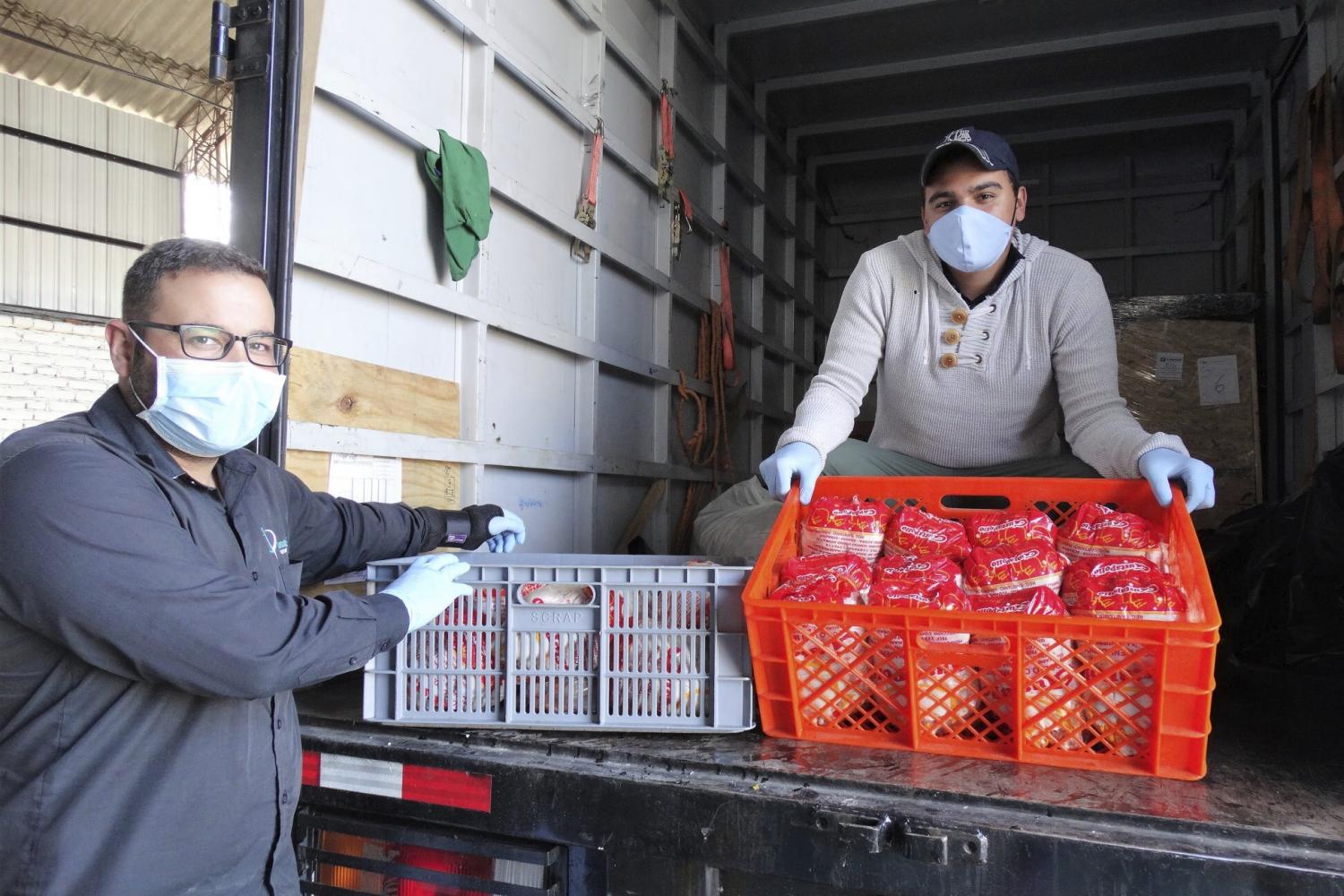
Image: PepsiCo, one of the companies involved in this latest collaboration to fight the social effects of COVID-19, has already donated more than $45 million to combat rising hunger related to the pandemic and distributed over 50 million meals worldwide.
The Consumer Goods Forum is rallying corporate members in a coordinated effort to support communities most affected by COVID-19. The move follows a statement from CEOs in the food and personal care space, who called on their peers to step up and act locally.
Beyond the direct health impacts of the pandemic, the accompanying economic crisis is the most devastating seen in a generation. Worldwide, COVID-19 could push up to 115 million people into extreme poverty this year (meaning they earn less than US$1.90 a day), the first increase in global extreme poverty in over two decades — and advocates warn the world's poorest may be among the last to receive a vaccine.
Even in wealthy countries like the U.S., conditions are stark and worrisome. More than 14 million people in the U.S. are out of work. Up to 13 million renter households are at risk of eviction, with CDC protections set to expire at the end of the year. And an additional 17 million U.S. residents could become food insecure because of the pandemic, bringing the total to more than 54 million people in the country, including 18 million children.
"This is a critical time for us. Our members recognize their responsibility to meet the needs of the most vulnerable," Wai-Chan Chan, managing director of the Consumer Goods Forum, said in a statement. The trade group identified a series of actions to accelerate support for vulnerable communities, which include deploying cash and in-kind donations and developing partnerships with community groups.
Some of the world’s largest retailers and manufacturers, including Walmart, Unilever, Colgate-Palmolive, General Mills and PepsiCo, signed on to follow the roadmap and work with each other on a collective response.
Aligning the industry's response effort is a potentially significant development. The 45 companies that signed on to the Forum's effort have already collectively donated hundreds of billions of dollars in response to the pandemic, but without coordinating with each other and with community groups on the ground, it's harder to see the impact on a broader scale or identify where gaps may exist in underserved communities.
"We must act together and intensify how our products and services reach these most vulnerable populations and mitigate the negative health and economic burdens that families around the world are experiencing during COVID-19," Nestlé CEO Mark Schneider and Ahold Delhaize CEO Frans Muller said in a joint statement on behalf of CEO members of the Forum's board of directors. "We need to go further and faster together.”
"It is hoped that by joining forces and focusing on local actions, member companies aim to move faster and more efficiently, while empowering the local teams, who are best placed to know what’s needed and how to work with key local partners and authorities, to implement at speed," the Forum's announcement goes on to say.
The trade group says it will collect feedback on members' response efforts in the coming months and publish a progress report by the spring of next year. Members will also share their experiences with each other via the CGF’s Global Learning Mechanism.
Image credit: Banco de Alimentos Quito for PepsiCo (press use only)

Mary has reported on sustainability and social impact for over a decade and now serves as executive editor of TriplePundit. She is also the general manager of TriplePundit's Brand Studio, which has worked with dozens of organizations on sustainability storytelling, and VP of content for TriplePundit's parent company 3BL.














